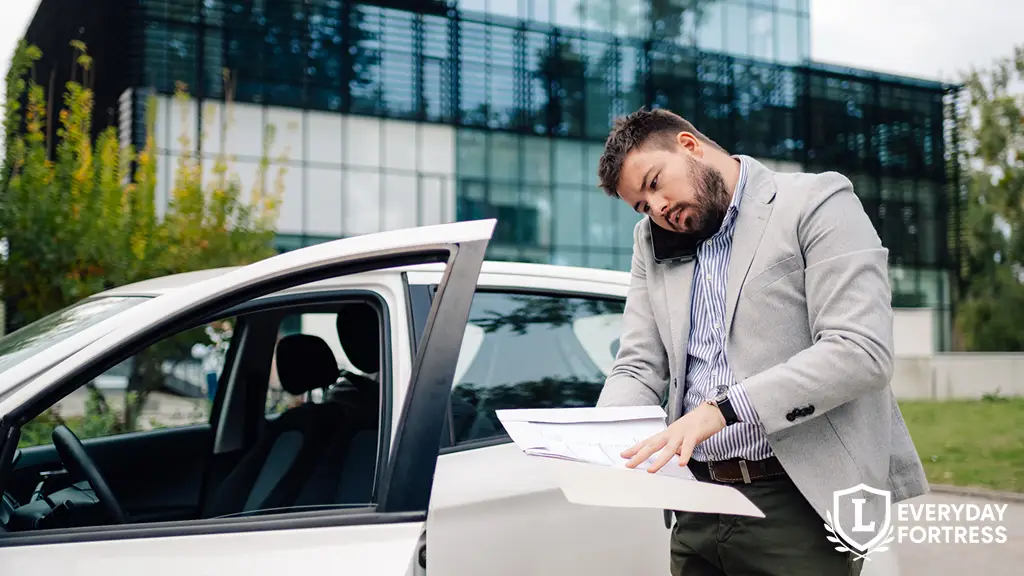You don’t need to own a car to need car insurance. If you rent cars, borrow vehicles, or have a driver’s license but no car, non-owner car insurance might be the coverage you didn’t know you needed.
Non-owner car insurance is a unique policy that provides liability coverage for people who drive but don’t own a vehicle. It’s not as common as traditional auto insurance, but for the right situations, it can be essential. In this post, we’ll break down what it covers, who it’s for, and how to get it.
What Is Non-Owner Car Insurance?
Non-owner car insurance is a liability-only auto insurance policy for individuals who regularly drive vehicles they don’t own. It protects you financially if you cause an accident while driving a borrowed or rented car.
This type of policy typically includes:
- Bodily injury liability: Covers injuries to others if you’re at fault in an accident.
- Property damage liability: Covers damage you cause to another vehicle or property.
- Optional add-ons: Some insurers offer medical payments or uninsured motorist coverage, but these options vary.
It does not cover the vehicle you’re driving, and it won’t pay for your own injuries or damages.
Who Needs Non-Owner Car Insurance?
Non-owner policies aren’t for everyone, but they’re a great fit for people in certain situations. Here’s who should consider this type of coverage:
1. Drivers Who Frequently Rent Cars
If you rent cars often—whether for business, travel, or convenience—a non-owner policy can save you money compared to daily rental insurance. It also gives you broader coverage and helps you avoid gaps in protection.
2. People Who Often Borrow Cars
When you borrow someone else’s car regularly (but don’t live in the same household), their policy may not fully protect you. A non-owner policy adds a layer of liability coverage that follows you, not the car.
3. Drivers Between Vehicles
If you’ve sold your car or moved to a city where you don’t need one for now, but still plan to drive occasionally, a non-owner policy maintains continuous insurance coverage. That matters when you go to buy a new car—gaps in coverage can lead to higher premiums.
4. High-Risk Drivers Needing SR-22 or FR-44 Forms
Many states require an SR-22 or FR-44 filing after certain traffic offenses. If you don’t own a car but still need this proof of financial responsibility, a non-owner policy with SR-22/FR-44 is often the only option.
5. Delivery or Gig Workers Who Use Rental Vehicles
Rideshare drivers and delivery workers who use rental cars or company vehicles sometimes need separate liability coverage. A non-owner policy may fill that gap, depending on the company’s insurance policies.
What’s Covered and What’s Not?
Typically Covered:
- Damage to other people’s property (if you’re at fault)
- Medical bills for others involved in an accident
- Legal fees if you’re sued for a covered incident
Not Covered:
- Damage to the car you’re driving
- Your own injuries or medical bills
- Comprehensive coverage (theft, vandalism, etc.)
- Business use or driving for hire, unless explicitly added
Remember: coverage details vary by insurer and state.
How Much Does Non-Owner Car Insurance Cost?
In most states, non-owner car insurance costs between $200 and $500 per year. Your rate depends on factors like:
- Your driving record
- Age and location
- How often you drive
- Any SR-22 or FR-44 requirements
If you’re seen as a high-risk driver, expect to pay more. Still, it’s usually cheaper than standard car insurance because it doesn’t cover a vehicle.
How to Get Non-Owner Car Insurance
Here’s how to get started:
- Compare providers
Not all insurance companies offer non-owner policies. Start by checking with major insurers like GEICO, State Farm, Progressive, or Nationwide. - Prepare your details
You’ll need your driver’s license, driving history, and information about how often you drive borrowed or rented vehicles. - Ask about extras
Inquire about medical payments, uninsured motorist coverage, and SR-22 filings if needed. - Get a quote and apply
Most providers can give you a quote online or over the phone. Once approved, you can get coverage within 24 hours in most cases.
Is It Worth It?
If you drive now and then but don’t own a car, this type of insurance can protect your finances, maintain your insurance history, and help avoid major legal consequences if you’re in an accident.
It’s especially worth it if:
- You want peace of mind while driving a borrowed or rented car.
- You’re working on rebuilding your driving record.
- You want to avoid lapses in your insurance coverage history.
🧠 You May Wanna Check Out:
- How to Write a Simple Will Without a Lawyer
- Urban Emergency Kit Checklist for Apartment Dwellers
- What Happens to Your Social Media When You Die?
Final Thoughts
Non-owner car insurance might sound unnecessary, but it can be a lifesaver in the right circumstances. It’s one of the simplest ways to stay legally covered, protect your finances, and maintain a clean insurance record—even if you don’t own a car.
For state-specific rules or SR-22 requirements, check with your state’s department of motor vehicles.
Before you get behind the wheel of someone else’s vehicle again, consider whether a non-owner policy is the missing piece in your legal protection toolkit.


